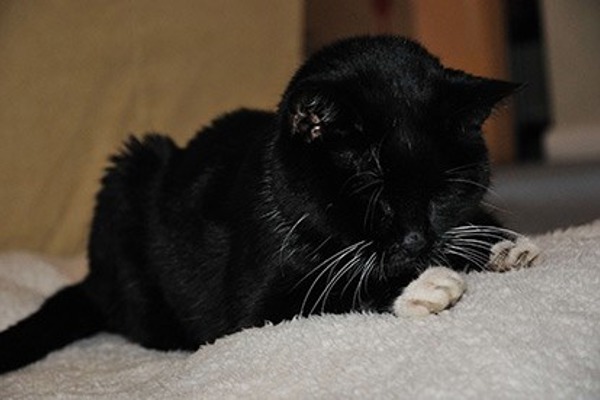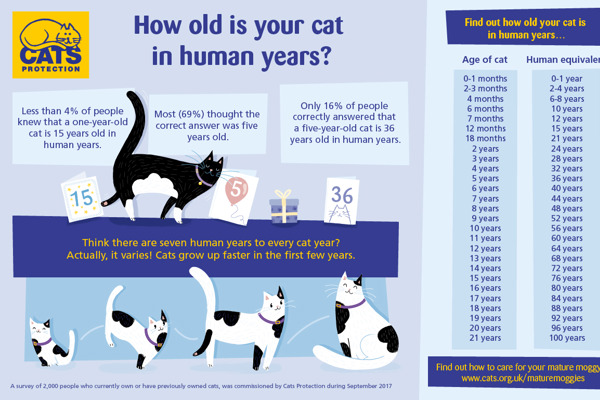Mature Moggies Q&A: Vet Sarah Elliott answers cat owners' queries about looking after an elderly cat.
Recently we championed the joy of older cats in Mature Moggies Week. We focused on everything from how to look after your cat as they age, to the senior kitizens currently looking for homes. As a result, many of you took to Twitter and Instagram to show off your own mature moggies as well as taking part in a special Q&A dedicated to older cats.
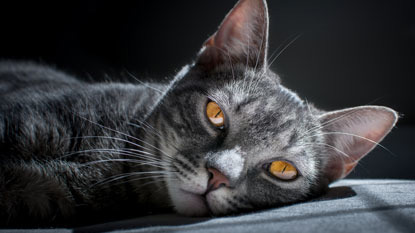
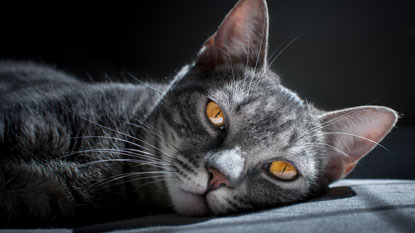
If you missed our Q&A with vet Sarah, here’s a roundup:
My elderly cat seems confused – is it down to old age?
I have a cat called Eric who is 17 and a half. He seems to eat a great deal but isn’t getting fatter or thinner. He meows far more and wants to be joined to me. He wanders around to another room and then howls as if he doesn’t know where he is. Is this old age?
If you haven’t already been, it might be worth taking your cat to the vet. They’ll be able to give the cat a full health check and check that everything is ok. Older cats can suffer from cognitive dysfunction (similar to dementia in people) and medical conditions like high blood pressure could lead to similar signs. For more information, take a look at our elderly cats advice.
I have a 12-year-old cat and wondered if there are any natural supplements that would benefit her in old age? Are there any oils or vitamins?
There are lots of really excellent complete diets on the market that are specially formulated for older cats. Older cats usually need fewer calories to compensate for reduced activity levels, as well as highly digestible protein. These formulated diets often have added omega 3 and essential fatty acids to help improve skin and joint health. Elderly cats are more susceptible to kidney disease, so making sure you have plenty of water available will help.
Is it true that some cats go off to die?
My 16-year-old went missing early in the morning almost six months ago. It was totally out of character and as she was thin and scrawny, I thought she might have been ill. Despite my efforts, she seems to have just disappeared.
I’m really sorry to hear about your cat. It must be difficult not knowing what happened to her. Our domestic cats have evolved from solitary ancestors and still retain that fierce sense of independence. This might be part of the reason why she took off on her own, but it is possible that if she felt out of sorts, she may have been disorientated and this prevented her from returning. Cats Protection can offer support with grief and loss through our Paws to Listen service.
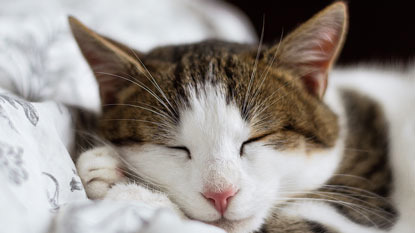
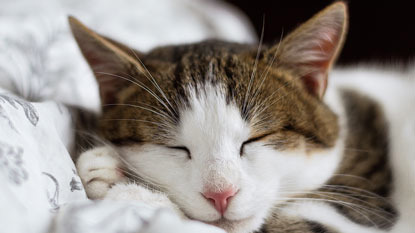
My cat is 12 and has hyperthyroidism – is her behaviour normal?
She is on Thyronorm and her levels have stabilised. I have her booked in for a pre-op assessment this weekend to discuss a thyroidectomy. However, she’s just had a couple of dizzy spells and she currently has a cold so isn’t interested in food. Is this normal and related to the medication? Should I see an improvement following the thyroidectomy? I believe the medication can make cats more susceptible to colds.
Hyperthyroidism is one of the more common conditions we see in older cats. It speeds up the metabolism, so cats can often have trouble with digestion and tend to lose weight despite feeling hungry. They can also have a rapid heart rate and high blood pressure and become more susceptible to opportunistic illnesses like the viruses causing cat ‘flu.’ The medication can have some side effects, but the symptoms you describe might relate more to the condition itself. I’d advise to see the vet to check that everything is on track. A thyroidectomy is a great option for treating the condition long-term, but it is a surgery, so the vet will want to make sure she is medically stable first.
If you’d like to learn more about living with an older cat, head to our Help & Advice pages for more information.

